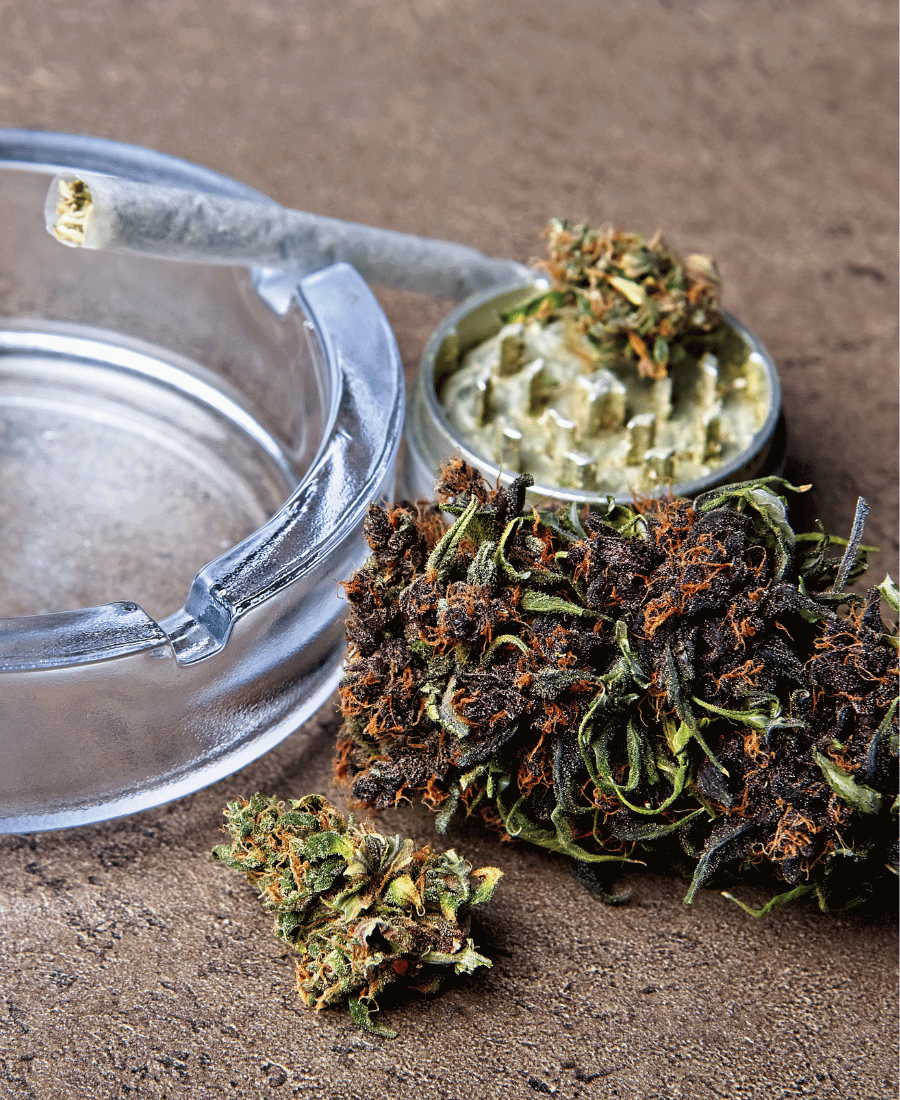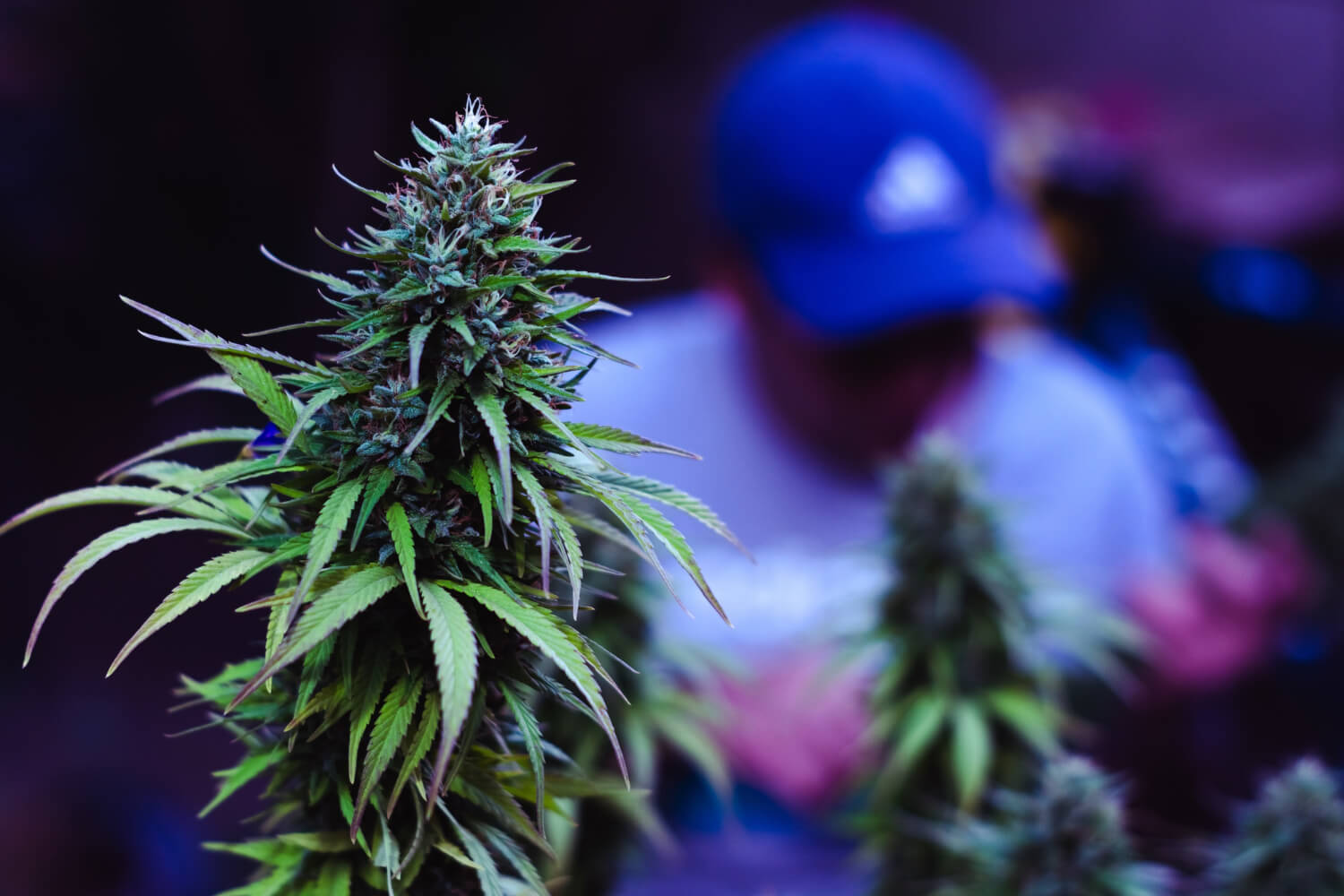What is THC-COOH?
THC-COOH stands for tetrahydrocannabinol carboxylic acid and is a metabolite of THC, the psychoactive compound in cannabis. So, when you smoke a Joint or use some hash, THC is processed in your body and is converted, among other things, into THC-COOH.
Why is THC-COOH important? It is especially relevant for drug tests. While THC is responsible for the “high,” THC-COOH is not intoxicating. It simply indicates that you have used cannabis and can remain detectable in your body for some time.
How long does THC-COOH stay in the body? That depends on various factors, such as how often and how much you use. Generally, THC-COOH can be detected weeks or even months after your last use, which makes it relevant for drug testing, whether at work or in sports.
Detectability of THC-COOH
When it comes to THC-COOH, detectability is an important topic. Here are the key points:
How long is THC-COOH detectable? For occasional users, THC-COOH can be detected in urine for up to three weeks after the last use. For regular users, it can remain detectable for up to a month or even longer.
Urine tests: The most common method for detection is the urine test, which specifically looks for THC-COOH. If you have used recently, a drug test could come back positive.
Influencing factors:
• Usage patterns: Occasional use leads to shorter detection times than regular use.
• Metabolism: Individual differences in metabolism can affect how quickly THC-COOH is broken down.
• Body fat: THC-COOH is stored in fat tissue, so people with higher body fat tend to have longer detection times.


Factors that influence the THC-COOH level
The THC-COOH level in the body can be influenced by various factors. Here are the most important ones:
1. Consumption pattern:
• Occasional use generally leads to lower THC-COOH levels and shorter detection times. With regular or heavy use, the levels can be significantly higher and detectable for longer periods.
2. Amount consumed:
• The more cannabis you use, the higher your THC-COOH level will be. A higher dose results in more breakdown products in the body.
3. Body fat:
• THC-COOH is stored in fat tissue. People with higher body fat can retain THC-COOH in their bodies for longer, which increases detectability.
4. Metabolism:
• Everyone has a different metabolism, which affects how quickly THC-COOH is broken down. A faster metabolism can shorten the breakdown time.
5. Hydration and nutrition:
• Adequate fluid intake and a healthy diet can also influence the breakdown and elimination of THC-COOH.
Meaning for drug tests
The THC-COOH level plays a crucial role in drug testing. Here are the key points:
1. Detectability: THC-COOH is the main metabolite of THC and is commonly detected in urine tests. Since it remains in the body longer than THC itself, it serves as a reliable indicator of cannabis use.
2. Testing methods: The most common way to check for THC-COOH is through urine testing. These tests are widely used in various settings, including workplaces, sports, and legal proceedings.
3. Consequences: A positive test for THC-COOH can have serious consequences, such as job loss, restrictions in sports, or legal issues. It is therefore important to be aware of your own consumption, especially if a drug test is approaching.
4. Threshold values: Drug tests have specific threshold values that determine when a test is considered positive. These values can vary depending on the testing method and the country.
5. Long-term detectability: With regular use, THC-COOH can be detected weeks or even months after the last use, making it especially relevant for people who are subject to frequent testing.
Health aspects of THC-COOH
THC-COOH, as a metabolite of THC, has several health aspects that are important to consider:
1. Not psychoactive: THC-COOH is not psychoactive, which means it does not produce any intoxicating effects. However, it serves as a marker for previous THC use, which can have significant health implications.
2. Long-term use: With regular cannabis use, the accumulation of THC and its metabolites in the body can have long-term health consequences. These may include potential impairments to the respiratory system and immune function.
3. Mental health: While THC-COOH itself is not directly linked to mental health disorders, THC use can increase the risk of anxiety disorders, depression, and other psychological issues in some individuals.
4. Dependence: Regular intake of THC can lead to dependence in some people. The presence of THC-COOH in the body may indicate regular use, which increases the risk of addiction.
5. Drug testing and health decisions: A positive drug test for THC-COOH can have professional consequences and may also influence your overall health decisions. It is important to be informed about the potential effects of use and the detectability of THC-COOH.



